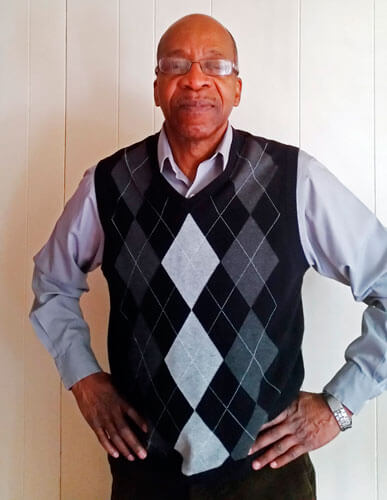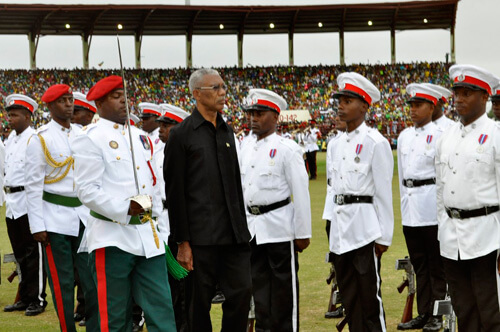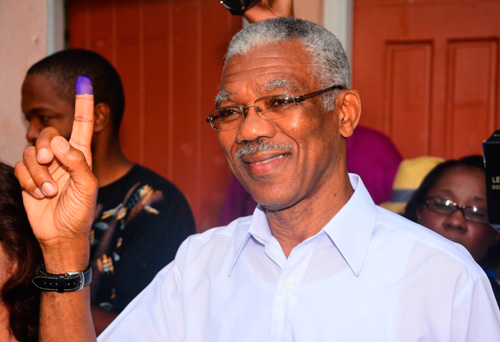Guyanese American author Dr. Lear Matthews gives a clear insight into Caribbean immigrants living in the United States, in his new book entitled “English-Speaking Caribbean Immigrants: Transnational Identities.”
The book outlines a scope of matters that highlights the transnational experiences and identity of English-speaking Caribbean immigrants in the United States, with implications for immigrants in general.
As a professor in the Department of Community and Human Services at State University of New York, Empire State College, Dr. Matthews researched this important topic to give his readers an indelible perception of the trends, policies and events that helped to build the lives of immigrants in this country.
Dr. Matthews, a former lecturer at the University of Guyana and current member of the Editorial Board of the Caribbean Journal of Social Work, said that few students of international migration envisioned the changes in migration trends, policies and events that have shaped the immigration process at the onset of the 21st Century.
The certified clinical social worker is Chair of the Advisory Board of the Caribbean American Social Workers Association and a member of the Advisory Board the CUNY Medgar Evers Social Work Program. He stated that the book chapter contributors, informed by their role as educators, researchers and community advocates, focus on the successes and challenges that face this population as they sustain connections and identities with the home country.
“At the core of these presentations is the exploration of the lived experiences of Caribbean immigrants and the institutions through which they bridge nation-states while maintaining a transnational life style,” said Dr. Matthews, who served as clinic director of the Bedford Stuyvesant Community Mental Health Center in Brooklyn for more than 10 years.
This timely and important book includes topics such as the unprecedented examination of Hometown Associations; adjustment of Caribbean immigrant students; and transnational concerns about the elderly.
“This book is a welcome addition to the literature on transnational and the immigrant experience. A must read for scholars and practitioners with an interest in the Caribbean, the volume offers new insights to all in the field of migration studies,” said Professor Lynne M. Healy, University of Connecticut.
Dr. Matthews, who has written extensively about how immigrants adapt in North America, cultural retention and cross-cultural adult learning, is a noted scholar in his field who has championed the cause of issues related to the Afro-and Indo-Caribbean Diaspora.
His published research has dealt extensively with the psychosocial impact of natural disasters, mental health and crime in the Caribbean, adjustment of Caribbean immigrant families, and the impact of occupational change.
The works of Dr. Matthews, who is a member of the coordinating committee for the Biennial Conference of Caribbean Social Work Educators, are included in college curricula across the U.S. and the Caribbean and used in the training of human services practitioners working with immigrants and trauma victims.
An award-winning educator and community leader, Dr. Matthews received the Distinguished Caribbean Social Work Educators Award and the prestigious SUNY Jane Altes Prize for exemplary community service. Dr. Matthews, former president of the New York Tutorial Support Group and current member of the Guyana Cultural Association Media Team, continues to foster his passion for education that reaches across continents.
Students of the University of Western Cape in South Africa benefit from a collaborative e-learning course in human services with students at Empire State College facilitated by Dr. Matthews.
Listed in the Who’s Who of Clinical Social Workers, Dr. Matthews applies his academic training to advocate for the rights of immigrants and is known for his ability to link scholarship and community service.
Professor Percy Hintzen of the University of California, Berkeley said, “Dr. Matthews is concerned at every turn with policy, practice and solutions.”
“We see a type of applied practical scholarship that is most refreshing and that is badly needed, and necessary,” said Hintzen.
Activist Eusi Kwayana in turn urged: “Various agencies, organizations and activists should begin to plan a response to Professor Matthews’ comments on the effects of violence in our communities.”

















